Reimagining Travel in a Post-COVID-19 World
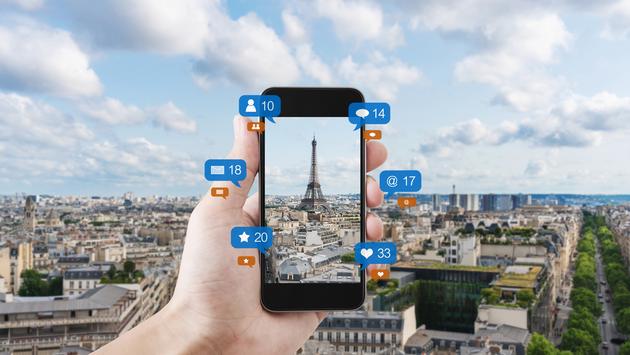
The world of travel may never be the same, but that doesn’t mean the industry of travel is dead. Navigating travel in a post-COVID-19 world is undeniably difficult, but despite all the ambiguity, and understandable stress surrounding health and safety as a traveler, there are companies that are on a mission to redefine what travel can and should be in this new era.
One such company is Sherpa, a tech-startup whose aim is to create a global community of distinguished cultural ambassadors to deliver exceptional travel experiences. The driving motive is transforming routine travel into a deeply immersive, cultural experience that can really only be discovered with the help of an insider, also known as a “sherpa.”
In a nutshell, Sherpa is a platform where your driver becomes your local best friend who’s goal is to curate the best travel experiences for you while you’re away from home. The sherpa is an expert of their culture and city and thus has the insight to curate the perfect itinerary based on your interests, personality and desired goals of the trip.
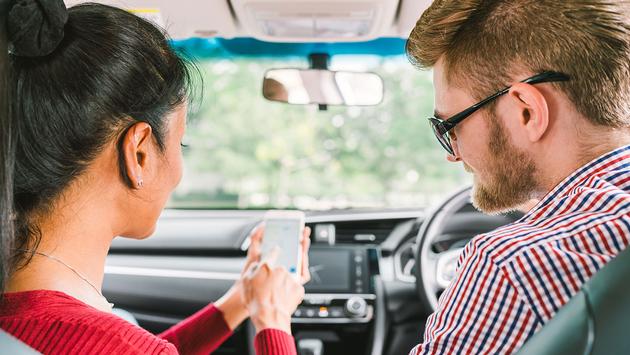
Travel by nature is logistically complex. Add in strict protocols, the uncertainty of sickness and the global climate of gloom and doom, and the charm and ease of travel greatly diminishes. This is why a safer and better approach is necessary.
“Coming up with a solution that nobody has before. That is exactly what my team has set out to do in navigating the ambiguity posed by COVID-19,” states Sherpa CEO Junaid Aziz. “While there is a precarious future ahead, one can find comfort in traveling with Sherpa, where the journey is tailored to your interests and devised to maintain utmost security.”
Design Thinking is an end-to-end process for inventing experiences, and that’s what Sherpa aims to do—create magical experiences, explains Aziz who also doubles as an adjunct professor at Stanford University’s d.School (design school). Though most wouldn’t dare try to launch a travel company during a global pandemic, Aziz and his co-founders believe there is no better time than now to design a solution to safer travel.
“This is where design thinking is critical because it’s how you imagine and design every moment within that experience. Presently, reshaping travel comes with a hefty task: navigating the ambiguity of our global health situation,” he continues.
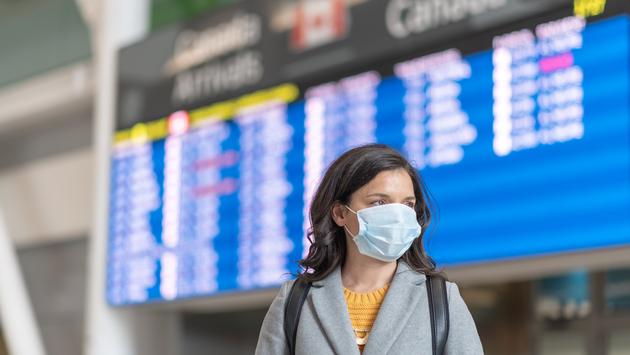
“In the midst of a pandemic, there is lingering uncertainty on the future of travel. Airports, once-bustling at all hours, are now dormant, and stay-at-home orders leave us yearning for human interaction. Designed for the post-COVID world, Sherpa is taking unprecedented steps to reinvent travel as old ways and solutions are simply not relevant in the time ahead.”
Although eager to venture out of the house, people will undoubtedly be reluctant to go to public places for quite some time, he says. “Safety, now the future of luxury, is at the framework of Sherpa’s design. High uncertainty calls for astute responses which is why the team at Sherpa is relying on a design thinking approach to reimagine travel.”
“We moved from thinking of ourselves as designers to thinking of ourselves as design thinkers. We have a methodology that enables us to come up with a solution that nobody has before,” says David Kelley, Founder of Ideo and the Stanford d.School.
To be a start-up in the post-COVID world, you need to be nimble because if we’ve learned anything from this pandemic it’s that things can change rapidly, Aziz says. “The genius of launching in this environment is in line with Sherpa’s advantage. Users can observe, discover, and build in real-time what safety, security and funs means to them.”
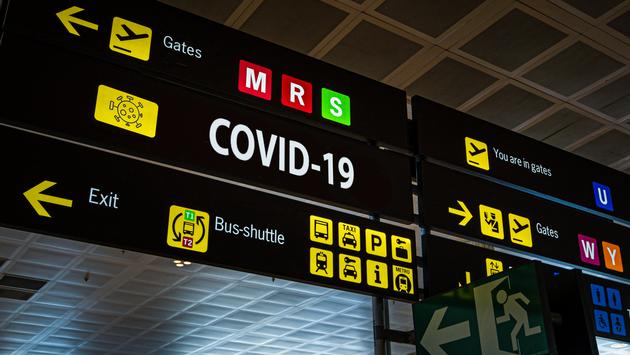
“Travel companies need to excite and attract customers as well as reassure them,” states Melissa Dalrymple, a McKinsey & Company partner. “To achieve this, leaders should focus on making travel better—not just safer—which means giving travelers more control, offering greater authenticity and personalization, and taking a customer-centric, agile approach.”
Travel is a wonderful privilege, one that gives us a more expansive worldview. It constitutes some of the more meaningful experiences of our lives, and it is a gift to humanity that should endure.
“The concept is brilliant because it responds to the notion that travel isn’t a series of events you’ve booked, a place you’re going to stay or a sight you’re going to see,” explains Bill Burnet, the Executive Director of the Design Program at Stanford.
“Travel is this holistic experience that starts well before the actual trip with—what do we want to do, where do we want to go, how do I experience something I’ve never experienced before and how do I find something I don’t know exists.”
One of the driving notions behind creating Sherpa was the concept that the conventional ways of travel are undermining the real virtues of travel.
“With a great friend in every city, Sherpa aims to help you see the unchartered side of a destination based on your personal travel style,” says Aziz.

“No one likes a back seat driver, but a front seat tour guide is a different story. While we often turn to travel specialists and other voyagers for suggestions on where to eat, play, and stay around the world, the best guide is often the one who is literally in front of you: your driver.”
“From Ubers and Lyfts to good old taxis, a driver will often know a city in its entirety and will direct passengers to their favorite local spots around town. In an age where scrolling through Instagram is favored over talking to a taxi driver, we’re missing out on some of the best travel tidbits.”
Sherpa is the fruit of our design research and innovation rigor, he states.
By applying Design Thinking to discover what the future of travel is, the founders of Sherpa realized what is valuable to travelers themselves. They did this by asking non-obvious questions about obvious things. It was those unexpected answers that gave the Sherpa team the creative quotient needed for this innovative product, coupled with a set of promised services and go to market strategies.
Catered to young, working adults, Sherpa’s founders have the data to prove that this demographics’ idea of a meaningful vacation is a deep cultural exchange. Not just Instagrammable pictures.
“We are building this for the discerning traveler who has an idea of all that is possible within a vacation and Sherpa is the conduit for delivering on that unique experience,” says Aziz.
Sherpas are experts in navigating their cities and therefore understand the state of safety in their region more than anyone. While travel might look different, the main concept will use their local knowledge to curate a journey that is safe and enjoyable for the traveler. Another thing to note? Personal driving will reduce the use of public transport and minimize contact with others.
“At Sherpa, you will find this personalized, authentic travel experience. No longer will you scramble to make travel plans last minute or find yourself reluctant towards adventure. Sherpa ensures that when you arrive in a new city, you know exactly where to go and what to expect. On your next trip, travel with confidence.”
In a post-COVID world, local knowledge is an invaluable source, Aziz continues. Wouldn’t your mind be more at ease if you had a local—familiar with every nook and cranny of their city—to help you navigate unfamiliar territory?
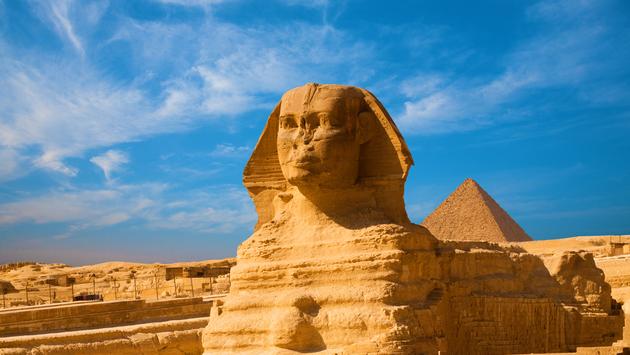
Unique personalities from Paris, London, Istanbul, Cairo, Dubai and Rome are carefully selected to deliver bespoke travel experiences to you and your travel companions. Users will be able to scan through the profiles of Sherpas based on the destination, find one who speaks to their interests and chat with them as much as they want before the trip.
Here’s how it works: simply select a seasoned local—a Sherpa who will curate your entire travel plan—and share your travel preferences for a personalized itinerary. Upon arrival, your Sherpa will drive you to the booked destinations and share hidden gems along the way, ultimately allowing you to experience the city like a local.
Sherpa carefully selects the most qualified Sherpas, giving users the insight needed to choose the best fit for their travel companion. The chosen sherpas take pride in their cultural heritage and are just as eager to show you around their city as you are to see it.
“Travel fosters human connection and eradicates cultural barriers standing in the way of global unity,” explains Aziz. “Beyond the confines of familiarity, we are beckoned to seek truths about the world at large, and in turn, develop a deeper, universal respect for others.”
Sherpa recognizes this fundamental virtue of travel, one that is overshadowed by surface-level tourism all too often. Resorting to TripAdvisor or travel agents for itinerary suggestions often facilitates a merely ordinary experience abroad.

Flying to Paris only to stand before the Eiffel Tower from afar or catching a glimpse of the Mona Lisa among herds of tourists isn’t very intimate. While interesting, such excursions are surface-level and somewhat void of cultural immersion.
“Rather than idly trailing along on tours that have been given to thousands of visitors before you, why not embark on an authentic, ‘off-the-beaten’ path that will be much more meaningful?” asks Aziz.
“The best guide on the course of this path, although commonly unnoticed, is your driver. Exchanges with front-seat drivers are typically passive and merely transactional. Riders answer emails on their phone and promptly pay without a word.
“As a local, drivers know the city like the back of their hand. More often than not, they are eager to share their heritage, yet paradoxically, riders don’t even bother to probe them for insider travel tips.”
Sherpa recognizes the localized expertise of drivers and aims to transform routine travel into an immersive cultural experience with this knowledge.
